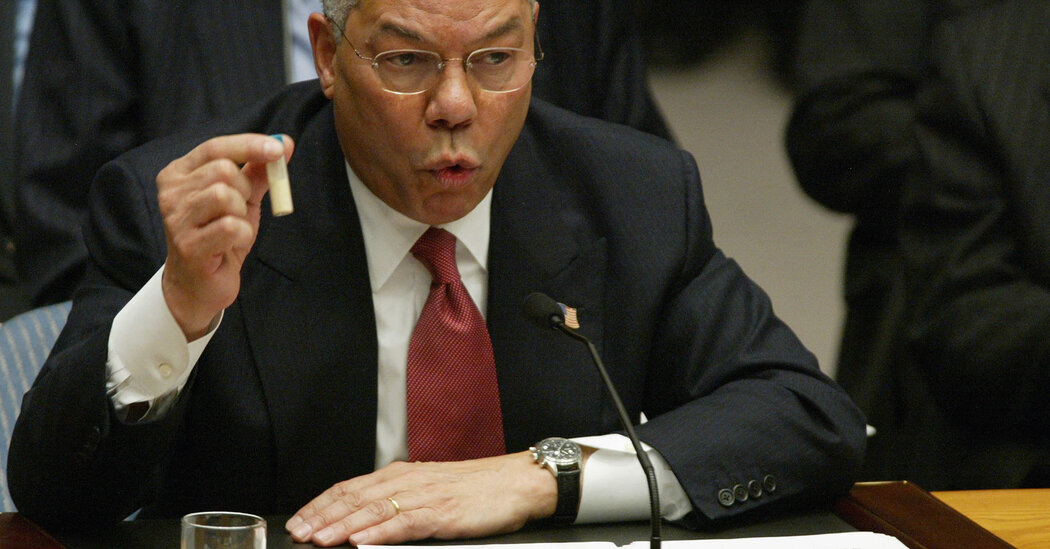
The Israel-hamas war will change the Politics of the Western world
The Israeli War against Hamas and the Islamic Terrorism of the World: Why Does the United States Wrongly Want to Go to War?
Even people who I know have no sympathies toward Hamas or any kind of terrorism roll their eyes at some of the recent accounts of atrocities. One friend told me that when people want to go to war, they always hear about horrible things.
In one particularly gruesome twist, there’s been an uproar over whether Hamas had beheaded babies — an unverified claim that President Biden repeated before the White House walked it back, and has been subject to much discussion since.
One of the main reasons for some of these incidents of doubt is the belief that false or exaggerated claims are used as a rationale for war, and examples of which include the Iraq war.
The unstable European relationship to Israel. It would appear that the anti-Israel stance of many European leaders would be reinforced by mass movements protesting on Palestine’s behalf. But if Europe is moving rightward overall, becoming more doubtful about mass immigration, more fearful of Islamicization and terrorism and more protective of its native culture as it slides toward old age — well, then, you could easily imagine European sympathy for the Israeli position increasing, with fear of an Islamist enemy within driving identification with Israel abroad.
The United States received international sympathy after the attacks. Muslims around the world were furious about the attacks, even if they were against U.S. policies. (The idea that Muslims widely celebrated the attacks has been repeatedly shown to be false or traces back to a few instances of dubious clarity.)
But, instead of mobilizing that widespread global sympathy to try to isolate the extremists, the United States chose to wage a reckless and destructive war in Iraq, driven by an impulsive desire for vengeance and justified by falsehoods about weapons of mass destruction.
The Bush administration’s lies in the lead-up to the war, the fiasco of its occupation, and the chaos, violence and death that the invasion set off have deeply and indelibly damaged the standing and credibility of the United States and its allies.
People also saw how occupation policies, like the quick and thoughtless disbanding of the Iraqi Army, contributed to the creation of ISIS a decade later.
To make matters worse, the Israel government has a long history of making false claims and denying responsibility for atrocities that later proved to be its doing.
In one example, four boys younger than 13 were Killed by Israeli airstrikes while playing by themselves at a beach, three of them hit by a second blast while desperately fleeing the initial blast.
Israel then investigated and exonerated itself. Peter Lerner, a spokesman for the Israeli Defense Forces, said that it had targeted a pound belonging to Hamas’s Naval Police and Naval Force, and which was used exclusively by the militant group.
The Telegraph’s correspondent witnessed the bombing and reported that some of the people who were there said that there was no attempt to interview them.
One can see how this history plays out in the global upheaval over the Hamas claim two weeks ago that an Israeli missile struck a hospital courtyard in Gaza. Israeli and American officials denied this, and asserted that the missile came from within Gaza. There were also initial claims that 500 people were killed in the hospital blast, leading to headlines and global condemnations. Then the number was challenged, leading to another round of uproar and back-and-forth.
It is certainly possible that the hospital may have been accidentally hit by a missile fired in Gaza — such misfires have happened. Large civilian casualties have been caused by Israel bombardment. The evidence is not conclusive either way, and the truth remains unknown.
Yet to a family that lost members in the hospital blast — which U.S. officials estimate killed hundreds — that squabble over exact numbers might seem as cruel as the skepticism about the atrocities committed by Hamas do to an Israeli family that suffered during the Oct. 7 attack.
There is still some truth to the idea that exaggerating atrocities could affect the public opinion regarding what costs are justified for civilians.
In 1990, after Saddam Hussein invaded Kuwait, there was widespread resistance in the United States to the idea of a new war — the country had not shaken “Vietnam syndrome,” that it was best for the United States to avoid large foreign military entanglements, both for practical and moral reasons.
It was in this context that a teenager testified before Congress in 1990 that she had seen Iraqi soldiers take premature babies out of incubators and left them to die on the cold floor, a shocking assertion repeated by many high-level officials. The claim was widely repeated by officials and the media, and even by Amnesty International.
The witness was the daughter of the Kuwait ambassador to the United States and her false testimony was put together by a public relations firm working for the Kuwait government.
The shocking fabrication was a key part of the effort to sell the war. Having to make sure that oil fields stayed in the control of the rulers of a tiny country was only the beginning. Opposing an army so savage that it commits the most unthinkable crimes is a more convincing appeal for war.
The terrible outcome of all this history is widespread distrust and dehumanization, as ordinary people’s loss and pain are viewed suspiciously as a potential cudgel that will cause further loss and pain for others.
There are many similarities to this on social media. “Hamas beheaded babies, Saddam had WMD and I’m the last unicorn,” one person posted on X. Another one said, “The ‘40 babies beheaded by Hamas’ lie is equivalent to the WMD’s lie.”
I was pleased to see that the videos of the horror were independently verified by Human Rights Watch. Similarly, Amnesty International’s independent investigation led the group to condemn the attacks as “cruel and brutal crimes including mass summary killings, hostage-taking.” The attacks should be investigated as war crimes, according to both organizations.
Both organizations have a history of documenting Israeli wrongdoings and have been vilified by the government and some NGOs for doing so.
Independent voices that can’t be swayed need to be heard. Despite the fact that the United States supports Israel no matter what, it might be worthwhile for President Biden to give independent human rights voices a try instead of embracing Netanyahu.
The Israeli-Israel War, Hamas Attacks and the Disruption of Palestinians: a Conversation with a Gazan Woman
Kidnapping civilians is a war crime, and should be avoided, according to Amnesty International. The families should not have to endure suspicion as a result of their pain.
But to credibly demand that war crimes be stopped and lives respected requires equal concern extended to all victims, including the two million Palestinians in the Gaza Strip.
One reason I’m afraid that the worst is yet to come in the Middle East is that the mutual dehumanization is the most savage I’ve ever seen it in decades of on-the-ground reporting in the region.
Hamas fighters are being destroyed in Israel’s invasion of Gaza. But I’m afraid it’s also helping to pulverize the recognition of shared humanity that in the long run allows people to live beside one another in peace. The poisonous hatred in turn is already spilling over to the United States and other countries worldwide.
I was thinking about this when I drove to meet some Gazans who were allowed to visit Israel and were stuck in East Jerusalem. When I tried to go to the Palestinian neighborhood, my Israeli taxi driver refused to go and left me on the road to get a Palestinian taxi. I interviewed a sweet 57-year-old Gazan woman who was talking to me about the war, and she told me she approved of Hamas attacks on Israeli civilians.
That conversation broke my heart. The woman said that she had lost two cousins to Israeli fire, including a young woman husbanded a year ago, and she was distraught over the bombardment of her family and friends in Gaza.
As the ground operation was ramping up over the weekend, the Prime Minister cited references to the Amalekites, who were the target of a divine genocide. In the story, God’s order was: “put to death men and women, children and infants.” Netanyahu wasn’t advocating that type of policy, but he did advocate a codeword called “amaluek” that means “to destroy without mercy.”
A video posted online counsels a rabbi that he is being vicious to the ultimate victim when he sparing a child. And this too breaks my heart.
There are of course many other voices that are merciful and sensible, and I’ve highlighted them previously. Extremis are always in charge when both sides are slaughtered and people are afraid.
That is the longtime pattern in the Middle East: It was Palestinian suicide bombers who propelled Benjamin Netanyahu into the prime minister’s office, and it has been Israeli hard-liners who fuel extremist Palestinian groups like Hamas and Islamic Jihad.
The Gazan Airstrike and the Israel-Israel War: Israel’s Rightward Shift After the August 21st Resurrection
The videos verify by The New York Times show the aftermath of an airstrike in Falluja, which occurred half a mile away from the site of Tuesday’s strike. The destruction shown is of similar magnitude, with several large buildings completely flattened. Rescue workers and residents can be seen digging through the rubble and carrying what appear to be injured and dead people, including children.
The devastated neighborhood where local officials say more than forty people were killed in an attack on Tuesday was hit again on Wednesday. The Gazan Interior Ministry reported that a new Israeli strike had killed and wounded “a number of people.”
Ms. Hammad’s last WhatsApp messages to her cousin Ahmed, 31, who had told her he was hosting dozens of people in a four-bedroom apartment, went unread.
Sousan Hammad, 38, a writer and teacher in Brooklyn, said she had been frantically trying to reach family members in Jabaliya. In recent days, she was able to keep in contact with her father’s side of the family in Gaza and convey their messages to her relatives in the US.
Mr. Hammash, who is now taking shelter in southern Gaza, said continuing communications outages were adding exponentially to the anguish of living amid deprivation and death.
“This is getting more insane every day,” said Yousef Hammash, an employee of the Norwegian Refugee Council who was born in the area.
A day after an Israeli airstrike thundered across a densely populated Gaza Strip neighborhood, Palestinians trying to reach family members there to learn their fates were met largely with unnerving silence.
The radicalization of the left. It shouldn’t come as a surprise that Westernprogressivism has a more radical line on Israel than it was a decade or so ago, especially given Israel’s own rightward shift in that same time. The extent to which the rhetoric of decolonization actually expands from cultural and psychological projects to support for armed struggle and apologia for antisemitic terrorism feels like an important revelation.
A “Arab street” has appeared inside the West. In the post-9/11 era, we were accustomed to think of popular discontent inside Arab and Muslim countries as an important geopolitical force in its own right. But 2023 may be remembered as the moment when Arab and Muslim discontent began to really matter inside Western countries as well.

